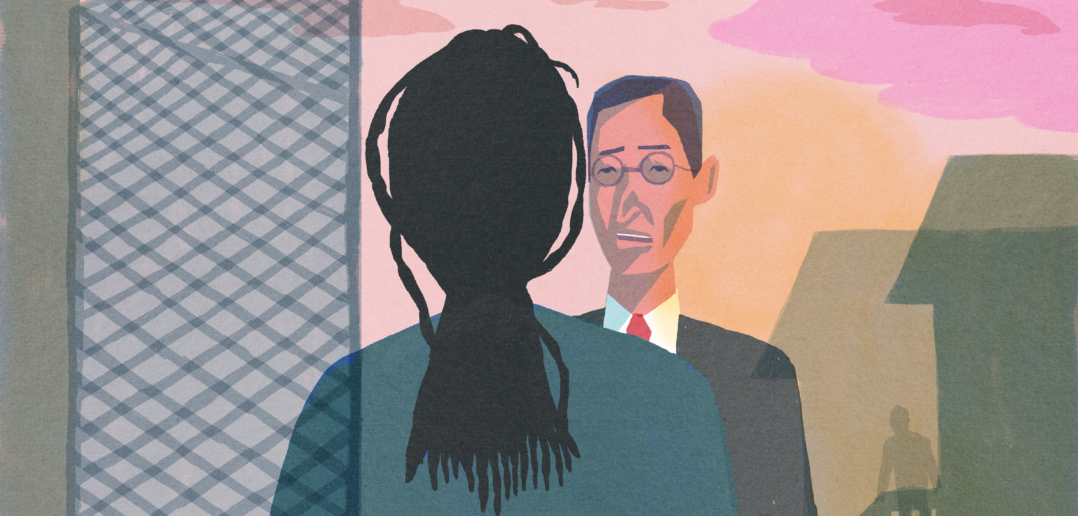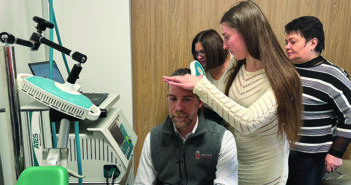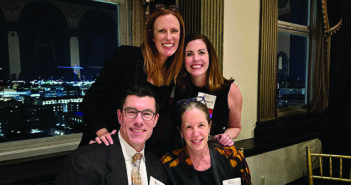To apologize, divine.
We all make mistakes. It’s human nature, after all. Even good doctors make mistakes. But what happens after that? And should you say that you’re sorry?
I was in my third year of medical school and in the OR, finishing up the last week of my surgery rotation. Our patient had an intestinal cancer which, tests had shown, had apparently not spread, so surgical removal ought to be curative. The surgeon would excise widely around the cancerous lesion, maybe a foot or more on either side of it, to insure against any local spread.
The surgery went smoothly and quickly. I was standing across from the surgeon when, in a practiced choreography, he passed more than two feet of the patient’s intestine to the nurse, placing it on the stainless-steel tray she held. She pirouetted away from us and moved across the room to the pathologist, who took the specimen from her and set it on the sideboard of the large sink, where he stood with his back to us. He then began to “run the bowel,” using his eyes and fingers to look and feel for any coarse or gritty abnormalities that might indicate the presence of more cancer.
His practiced movements were efficient, his gloved fingers judging the tissue as his hands traveled along the bowel. He occasionally rinsed his hands and the specimen from the faucet on his right. Assuming no further cancer was found by the pathologist, the surgeon would then put the severed ends of the bowel back together, reestablishing the integrity of the intestine, an “end-to-end” procedure.
I watched the surgeon finishing up his preparations and looked behind him to see the pathologist still feeling his way carefully along the intestinal tissue, rinsing from time to time. And then.
And then the intestine disappeared. One moment the pathologist held the specimen in his hand to rinse it off, and the next moment his hands were empty. I could not see into the basin itself, but I had seen the patient’s intestine slide off the side board and into the basin, and, presumably, slither snake-like down the drain. The pathologist’s empty hands remained suspended in the air, above the sink, as if he were a conductor poised in front of a symphony orchestra.
But there was no music. And no intestine. I saw him glance around to see if his slip-up had been noticed by anyone and I quickly averted my eyes back toward the patient’s abdominal cavity in front of me, hoping he would not realize I’d witnessed what happened.
My mind was a rush of confusion. Should I say something? What would I say? And to whom? It wouldn’t make any difference; the piece of intestine was long gone, anyway. If I said something, would I be cast as a trouble-making student, ratting out a veteran doctor?
“How about it, Ted?” the surgeon called across the room. “Bowel look OK to you?”
I kept my head down and waited for the pathologist’s response. “Um, yup, just finishing up.” He paused a couple of beats. “I wasn’t able to find anything more. What I checked was all clean.”
His answer was artistic in a way, elegant in its brevity. What he’d checked was clear of cancer. He just hadn’t checked everything. And wouldn’t be able to look at any of it under a microscope.
There was something for me to learn here, something not taught in medical school. I don’t refer to right and wrong, or to what is moral or ethical. I refer to something more basic than that: human nature. Right then I realized that doctors were human like everyone else, despite the high regard usually afforded them because of their profession. Doctors are fallible, I’d discovered. They will make mistakes. But what should they do about that?
When I was in training, doctors were advised never to apologize, since that might be construed as an admission of guilt. Of culpability. Things change, though. In 1986 Massachusetts passed the first “sorry” law, protecting doctors, and others, from having a sympathetic apology used against them in a legal case. Now some 39 states and the District of Columbia have enacted “sorry” laws (though not Rhode Island), some full blown, others quite basic, but all passed with the goal of reducing malpractice claims. The outcome, however, has been decidedly mixed. Some states did show a modest decline in lawsuits at first, while others, ironically, found that claims actually increased. Yet, malpractice suits aside, there is something else to be considered when a doctor says “I’m sorry”—an acknowledgement of the sacred trust that underpins the doctor-patient relationship.
That relationship is based on an unspoken contract of duty the doctor assumes toward the patient, a commitment all the more important when things go awry. In those instances, patients not only want to hear the words “I’m sorry,” they deserve to hear them. And most doctors want to say “I’m sorry.” Because the doctor is sorry and does feel badly when things go wrong. And, frankly, also wants to regain the patient’s trust. Personally, I decided early on to say “I’m sorry,” and over my career I’ve had many opportunities to follow my own advice. That has always worked out for the better, like the following incident that happened after I’d been practicing for about 15 years.
I was working at an urgent care office, alternating shifts with another physician, Dr. Kennedy. Reviewing the patient charts from the day before, I noticed that one middle-aged man had been tested extensively by Dr. Kennedy, including a chest X-ray and an ECG, before being discharged with “abdominal pain, resolved.” I called the patient to check on him.
“Hello. This is Dr. Stout from the Beltline Doctors Care office calling for Mr. Johnson.” I heard muted voices in the background but there was no reply. “I’m looking for Mr. Johnson, please. My partner saw him yesterday and I’m wondering how he’s doing.”
“He’s dead,” came the female-voiced answer, robotic in tone. “He died last night in the ER.”
I must have said “I’m sorry” at least a half dozen times, in one way or another. I didn’t ask for details, or try to make excuses or explanations. Just respectfully and sincerely repeated the watchwords, adding “truly” or “very” at times.
After work, feeling sad about the tragic circumstances, I drove to the patient’s address, not more than two miles from our office. The home was in a downtrodden neighborhood, its small lawns mostly unkept or cluttered with old cars parked haphazardly on them. The houses were small, too, many with peeling paint and some with broken windows. It was around 5:30 and folks were out on their porches, sitting on old sofas, having a smoke.
As I mounted the rickety steps to the Johnsons’ front door, I felt the neighbors’ suspicious eyes on me, a stranger in a jacket and tie invading their enclave—a bill collector, perhaps. I waited at the front screen door while a youngster went back inside to tell an adult that someone was at the door.
A woman walked slowly toward me, her large body fluid in movement, her face betraying her grief, but also anger and resentment, her eyes dark and tight.
We talked through the screen door. “Mrs. Johnson, I just want to say I’m sorry. I know Dr. Kennedy feels the same. You’re busy and I don’t want to interrupt anything, I’m just so sorry.” She did not reply at all except to shift her weight and fold her arms across her chest. “We talked on the phone earlier and I just stopped by on my way home to tell you in person how sorry I am about what happened.”
She softened at those words and looked back at the six or seven folks crowded around her dining room table. Their stern looks and stiff posture left little question about their attitude, it seemed to me.
When she turned back, she said, “So you came by here after work?”
“Yes, ma’am. To tell you how badly I feel. We feel.”
“I’d like you to meet his children,” she said, opening the door. “And his mother.”
For 15 minutes or so I said my words to the others, emotions high in the room. I got a firm handshake and a thank-you-for-stopping-by from the patient’s brother and a modicum of teenage resentment from his son, but still a reasonable, though reluctant, handshake. The patient’s mother said, “Thank you for coming by to pay your respects,” and pulled me into an engulfing hug, tears flooding her eyes and then mine.
On the way out of the house, Mrs. Johnson took my arm and walked with me out onto her narrow porch. She was making a statement to her watchful neighbors, I thought: here’s a white doctor who came to my house, to show respect and to offer condolences about Jason, to say he’s sorry.
Do doctors make mistakes? Yes, of course. Should doctors apologize and say they are sorry?
Yes, absolutely. Those few syllables make everyone feel better.




